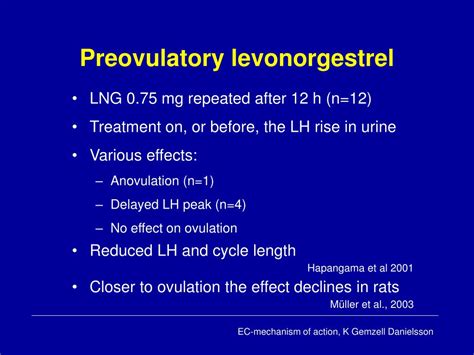Intro
Discover Levonorgestrel side effects, including hormonal changes, nausea, and dizziness. Learn about common and rare effects, interactions, and warnings to ensure safe use of this contraceptive medication.
The use of levonorgestrel, a synthetic form of progestin, has become increasingly common in various contraceptive methods, including oral pills, intrauterine devices (IUDs), and emergency contraceptive pills. While levonorgestrel is effective in preventing pregnancy, it can also have several side effects that vary in severity and impact. Understanding these side effects is crucial for individuals considering or already using levonorgestrel-based contraceptives.
Levonorgestrel works by altering the hormonal balance in the body, which can affect different systems and lead to a range of side effects. Some individuals may experience mild and temporary side effects, while others may encounter more severe reactions. It's essential to be aware of the potential side effects to make informed decisions about contraceptive use and to seek medical attention if necessary. The importance of discussing levonorgestrel side effects lies in promoting safe and effective contraceptive use, ensuring that individuals can weigh the benefits against the potential risks.
The impact of levonorgestrel on the body can be significant, and understanding its effects is vital for managing expectations and maintaining overall health. By exploring the various side effects associated with levonorgestrel, individuals can better navigate their contraceptive options and make choices that align with their health needs and priorities. Whether considering levonorgestrel for regular contraceptive use or as an emergency measure, being informed about its side effects can empower individuals to take control of their reproductive health.
Common Side Effects of Levonorgestrel

Levonorgestrel is associated with several common side effects, including nausea, breast tenderness, and changes in menstrual bleeding patterns. These side effects are often mild and may resolve on their own within a few months of starting the contraceptive. However, some individuals may experience more persistent or severe side effects, such as mood changes, fatigue, and weight gain. It's essential to monitor these side effects and consult a healthcare provider if they become bothersome or interfere with daily life.
Less Common Side Effects
Some less common side effects of levonorgestrel include headaches, dizziness, and changes in libido. These side effects can be more challenging to manage and may require medical attention if they persist or worsen over time. In rare cases, levonorgestrel can also cause more severe side effects, such as blood clots, high blood pressure, and liver problems. Individuals with a history of these conditions should discuss their risks with a healthcare provider before starting levonorgestrel.Long-Term Effects of Levonorgestrel

The long-term effects of levonorgestrel are not entirely understood and may vary depending on individual factors, such as age, health status, and duration of use. Some studies suggest that long-term use of levonorgestrel may be associated with an increased risk of certain health conditions, such as osteoporosis and cardiovascular disease. However, more research is needed to confirm these findings and understand the potential long-term effects of levonorgestrel.
Impact on Menstrual Cycle
Levonorgestrel can affect the menstrual cycle, leading to changes in bleeding patterns, such as lighter or heavier periods, or even amenorrhea (the absence of menstruation). These changes can be temporary and may resolve once the contraceptive is stopped. However, some individuals may experience persistent changes in their menstrual cycle, which can be a concern for those trying to conceive or maintain regular menstrual cycles.Levonorgestrel and Weight Gain

Weight gain is a common concern for individuals using levonorgestrel-based contraceptives. While the exact mechanisms are not fully understood, levonorgestrel may contribute to weight gain by increasing water retention, appetite, and fat storage. However, the extent of weight gain varies widely among individuals, and some may not experience any significant changes in weight.
Diet and Lifestyle Modifications
To minimize the risk of weight gain while using levonorgestrel, individuals can focus on maintaining a healthy diet and lifestyle. This includes consuming a balanced diet rich in fruits, vegetables, whole grains, and lean proteins, as well as engaging in regular physical activity, such as walking, running, or swimming. Additionally, getting enough sleep, managing stress, and monitoring portion sizes can help mitigate potential weight gain.Levonorgestrel and Mental Health

The relationship between levonorgestrel and mental health is complex and not fully understood. Some individuals may experience mood changes, such as depression, anxiety, or irritability, while using levonorgestrel-based contraceptives. However, it's essential to note that these effects can be highly individualized and may not be directly caused by the contraceptive.
Coping Mechanisms and Support
For individuals experiencing mental health concerns while using levonorgestrel, it's crucial to seek support from healthcare providers, therapists, or support groups. Engaging in stress-reducing activities, such as meditation, yoga, or deep breathing exercises, can also help manage symptoms. Additionally, maintaining a healthy lifestyle, including a balanced diet, regular exercise, and sufficient sleep, can contribute to overall mental well-being.Levonorgestrel and Skin

Levonorgestrel can affect the skin, leading to changes in acne, skin texture, and oil production. Some individuals may experience improvements in acne, while others may notice worsening symptoms. Additionally, levonorgestrel can cause skin sensitivity, making it more prone to irritation and reactions.
Skin Care and Protection
To minimize the risk of skin issues while using levonorgestrel, individuals can focus on maintaining good skin care habits. This includes using gentle, non-comedogenic products, avoiding harsh exfoliants, and protecting the skin from the sun and environmental stressors. Regular moisturizing, using sunscreen with at least SPF 30, and avoiding picking or popping pimples can help reduce the risk of skin problems.Levonorgestrel and Hair Loss

Hair loss is a potential side effect of levonorgestrel, although it's relatively rare. The exact mechanisms are not fully understood, but levonorgestrel may affect hair growth patterns, leading to thinning or shedding. However, this effect is usually reversible once the contraceptive is stopped.
Hair Care and Maintenance
To minimize the risk of hair loss while using levonorgestrel, individuals can focus on maintaining good hair care habits. This includes using gentle shampoos and conditioners, avoiding excessive heat styling, and getting regular trims to prevent split ends. Additionally, eating a balanced diet rich in vitamins and minerals, such as biotin, vitamin E, and omega-3 fatty acids, can help promote healthy hair growth.Levonorgestrel and Breast Health

Levonorgestrel can affect breast health, leading to changes in breast tenderness, density, and cancer risk. While the exact relationship is not fully understood, some studies suggest that levonorgestrel may increase the risk of breast cancer, particularly with long-term use.
Breast Self-Exams and Screenings
To minimize the risk of breast health issues while using levonorgestrel, individuals can focus on maintaining good breast health habits. This includes performing regular breast self-exams, scheduling annual mammograms, and discussing any concerns or changes with a healthcare provider. Additionally, maintaining a healthy lifestyle, including a balanced diet, regular exercise, and stress management, can contribute to overall breast health.What are the most common side effects of levonorgestrel?
+The most common side effects of levonorgestrel include nausea, breast tenderness, and changes in menstrual bleeding patterns.
Can levonorgestrel cause weight gain?
+Yes, levonorgestrel may contribute to weight gain in some individuals, although the extent of weight gain varies widely.
Is levonorgestrel associated with an increased risk of breast cancer?
+Some studies suggest that levonorgestrel may increase the risk of breast cancer, particularly with long-term use, although the exact relationship is not fully understood.
In conclusion, while levonorgestrel is an effective contraceptive option, it's essential to be aware of its potential side effects. By understanding the common and less common side effects, as well as the long-term effects, individuals can make informed decisions about their contraceptive use. If you're considering levonorgestrel or are already using it, we encourage you to share your experiences, ask questions, or seek guidance from a healthcare provider. Your feedback and comments can help others navigate their contraceptive options and promote a healthier, more informed community.
